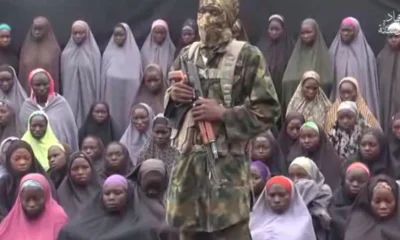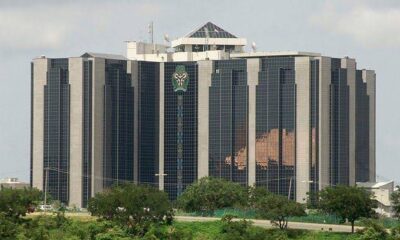Entertainment
Muslims Launch Campaign to Ban Netflix Over ‘The Herd’ Movie (Video)
A growing number of Nigerian Muslims are calling for Netflix to be banned over its new film “The Herd,” accusing the movie of profiling Fulani herders as kidnappers and fueling dangerous stereotypes.

- A growing number of Nigerian Muslims are calling for Netflix to be banned over its new film “The Herd,” accusing the movie of profiling Fulani herders as kidnappers and fueling dangerous stereotypes.
A group of Nigerian Muslims has launched an online campaign calling for Netflix to be banned and its services canceled over the streaming of the new movie “The Herd.”
The film, which portrays the daily kidnappings of innocent Nigerians by Fulani herdsmen and bandits, has triggered outrage among some viewers who believe the storyline promotes ethnic profiling. On X (formerly Twitter), many users have urged others to delete the Netflix app from their devices in protest.
The campaign has intensified discussions around how national security issues should be portrayed in film, and whether creative freedom should be restricted when it intersects with ethnic or religious sensitivity.
Nollywood actor Daniel Etim-Effiong makes his directorial debut with “The Herd,” released on November 17, 2025, and already generating over 30 million views on Netflix. Sharing clips from the movie on Instagram, NaijaOnNetflix wrote: “One minute they’re celebrating love, the next they’re fighting for their lives. The Herd is now playing on Netflix.”
However, the clips did not sit well with many Muslim viewers, who accused the film of unfairly portraying Fulani herders as violent criminals. Others argued that the storyline mirrors the current security situation in Nigeria and should not be censored.

One user, @Fulani_Tutor, wrote:
“Ban Netflix. Ban The Herd. Delete Netflix from your phone. As a Muslim, you have no business with this movie.”
Former presidential aide Bashir Ahmad also criticized the film, arguing that it reinforces harmful stereotypes at a time when many innocent Fulani herders are victims of insecurity themselves. He warned that such portrayals could deepen existing ethnic tensions across the country.
Ahmad said the teaser alone depicted Fulani herdsmen as sudden, violent kidnappers, adding that while some criminals are indeed Fulani, the majority are innocent citizens who have suffered greatly from banditry.
He noted that filmmakers should have engaged security experts, pastoralist groups and victims to capture a balanced view of Nigeria’s complex insecurity challenges.
Other Nigerians disagreed with the backlash, insisting the movie simply reflects reality.
Commentator @sirminzy argued that filmmakers cannot be expected to ignore Nigeria’s worsening security crisis just to avoid offending certain groups.
“The purpose of storytelling is to reflect society,” he wrote. “The Herd mirrors Nigeria’s current challenges. If the truth is uncomfortable, that’s not the movie’s fault.”
Food critic Opeyemi Famakin also mocked the calls for a ban, saying the controversy has given the film even more publicity.

Actress Uche Jombo praised the film’s timing, saying it accurately captures Nigeria’s painful security realities, while other viewers expressed emotional reactions to the storyline.
However, not everyone celebrated the movie. Social media critic Daniel Regha described “The Herd” as visually impressive but flawed in its narrative and characterization, arguing that it pushes unnecessary negative stereotypes across multiple ethnic groups.
Watch some scene
The Herd couldn’t have dropped at a more fitting moment. It mirrors Nigeria right now. Perfect casting, uncomfortable accuracy. @etimeffiong_ 💐 pic.twitter.com/p5OkEdXhwM— Sam Otigba™️ (@SamuelOtigba) November 21, 2025
What happens when the happiest day of your life…becomes the fight for your life?
My baby, THE HERD is here.
In 🇳🇬 cinemas nationwide October 17. pic.twitter.com/meQgT5LE9Q— Gen ✨ (@genovevaumeh) August 29, 2025























